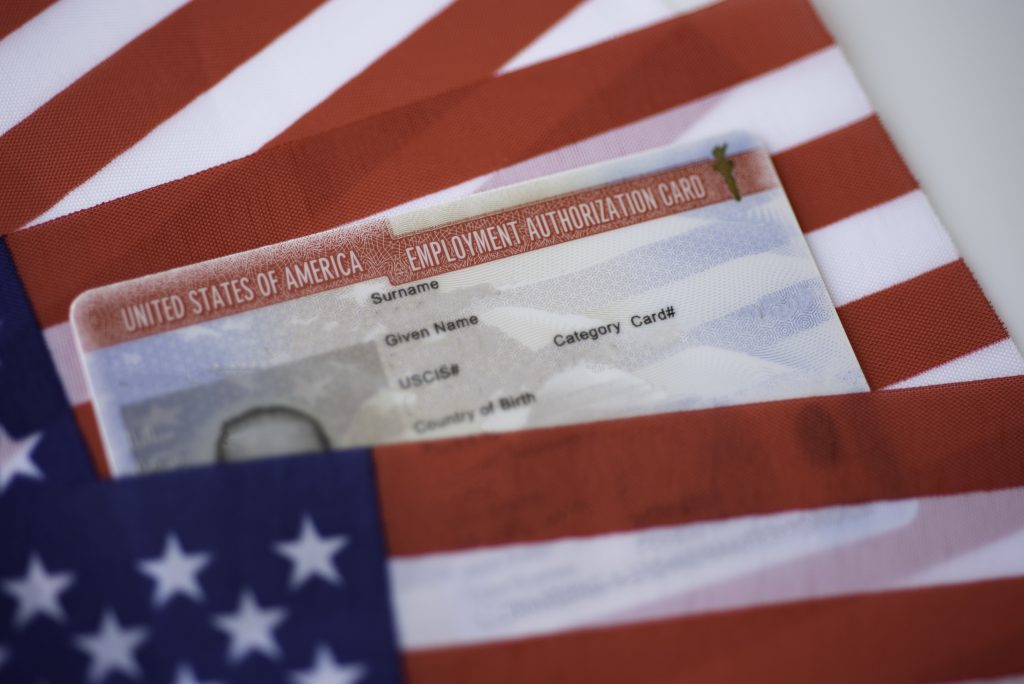Immigration Updates 2021
GLS has a dedicated immigration team that works to provide clients with relief from human trafficking, assistance with VAWA petitions for survivors of domestic violence, and U-visas for survivors of qualifying crimes. The staff on these projects closely monitor legal changes within the immigration system, as legal updates and changes can have life-changes impacts on clients.
During the last five years, immigration processes have been in flux. Wait times increased for many individuals seeking Visas and green cards. Many clients expressed a sense of hopelessness over the changing nature of their cases. However, since January of 2021, there have been at least a hundred actions taken in relation to immigration. Many of these actions are positive and have been put in place to reduce strain on both individuals and the overall immigration system. Some of the positive changes (but not all) are outlined below.
- Dedicated Docket Process for Asylum Seeking Families Arriving at Southern Border, May 28, 2021
- Secretary of Homeland Security Mayorkas and Attorney General Garland announced a new Dedicated Docket process to adjudicate immigration cases of families who arrive between ports of entry at the Southwest Border.
- Under the Dedicated Docket, EOIR’s immigration judges will work to issue a decision within 300 days of the initial master calendar hearing, subject to the unique circumstances of each case including allowing time for families to seek representation where needed.
- This new process should significantly decrease the amount of time it takes for migrants to have their cases adjudicated while still providing fair hearings for families seeking asylum at the border.
- USCIS Issues Policy Providing Further Protections for Victims of Crime
- Many noncitizens with pending U Visa applications will be able to receive work permits more quickly through this process.
- As a result of high case volume, U Visa petitioners now wait approximately five years before receiving a determination that allows them access to an employment authorization document and deferred action. This wait time not only leaves these individuals vulnerable to financial instability and fear of deportation, but it also can disincentivize victims from coming forward and cooperating with law enforcement.
- Through this policy update, victims with pending bona fide petitions will receive the stability they need as they rebuild their lives while working with law enforcement to investigate and prosecute criminal activity.
- Increasing Employment Authorization
- Updated policy guidance will increase the current one-year validity period on both initial and renewal EADs (Employment Authorization Documents) to two years for certainadjustment of status applicants.

Employment Authorization card on USA Flag surface. Close up view.
- This guidance was issued due to ongoing processing delays affecting the completion of adjustment of status applications.
- “These policy measures are consistent with the Biden-Harris administration’s priorities to eliminate unnecessary barriers to our nation’s legal immigration system and reduce burdens on noncitizens who may be eligible for immigration benefits,” said Acting USCIS Director Tracy Renaud.
- Eliminate “Blank Space” Criteria
- USCIS will no longer reject Form I-589, Form I-612 or Form I-918 if an applicant leaves a blank space.
- DHS Withdraws ‘Affidavit of Support’ Proposed Rule
- The Department of Homeland Security (DHS) today announced the withdrawal of the affidavit of support proposed rule, consistent with DHS’s commitment to reduce barriers within the legal immigration system that placed increased burdens on American families wishing to sponsor individuals immigrating to the U.S.
- Consistent with President Biden’s Executive Order (EO) 14012, Restoring Faith in Our Legal Immigration Systems and Strengthening Integration and Inclusion Efforts for New Americans, DHS and USCIS are committed to eliminating barriers that prevent legal immigrants from accessing government services available to them.
- Expansion of Temporary Protected Status:
- Haiti
- Secretary of Homeland Security Alejandro N. Mayorkas announced a new 18-month designation of Haiti for Temporary Protected Status (TPS). This new TPS designation enables Haitian nationals (and individuals without nationality who last resided in Haiti) currently residing in the United States as of May 21, 2021 to file initial applications for TPS, so long as they meet eligibility requirements.
- Venezuela
- The designation of Venezuela for TPS is effective on March 9, 2021, and will remain in effect for 18 months, through September 9, 2022. The 180-day registration period for eligible individuals to submit TPS applications begins March 9, 2021, and will remain in effect through September 5, 2021.
- Burma
- The Department of Homeland Security today published a Federal Register notice (FRN) designating Burma for Temporary Protected Status (TPS) for 18 months, effective May 25, 2021, through Nov. 25, 2022.
In addition to the above actions, President Biden also created many new Executive Orders regarding immigration. For example, one order implements a comprehensive three-part plan for safe, lawful, and orderly migration across the southern border, as well as a review of the Migrant Protection Protocols program, which has since been discontinued.
The American Immigration Lawyers Association has twelve priority areas for reform as listed below. A review of how the Biden administration has met or not met these priority areas can be found here.
- Proclaim a Message of Welcome
- Ensure Fairness, Efficiency, and Accountability in the Legal Immigration System
- Restore Integrity, Fairness, and Efficiency to the Immigration Courts
- Ensure the Fair and Humane Treatment of Migrants at the Border
- Restore Asylum Law and Protection for Victims of Crime and Refugees
- Guarantee Legal Assistance and Counsel
- End Inhumane Detention
- Set a Vision for Immigration Enforcement that is Fair, Humane, and Effective
- CBP and Port of Entry Processing
- Protect Undocumented People and Others with Deep Ties to America
- Employment-Based and Family-Based Immigration
- Ensure the State Department (DOS) Is Properly Resourced to Provide Fair and Efficient Consular Processing
GLS will continue to monitor changes in the system and their impact on clients as the administration continues to create new actions.
